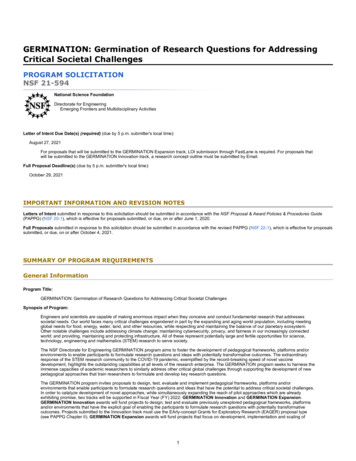
Transcription
GERMINATION: Germination of Research Questions for AddressingCritical Societal ChallengesPROGRAM SOLICITATIONNSF 21-594National Science FoundationDirectorate for EngineeringEmerging Frontiers and Multidisciplinary ActivitiesLetter of Intent Due Date(s) (required) (due by 5 p.m. submitter's local time):August 27, 2021For proposals that will be submitted to the GERMINATION Expansion track, LOI submission through FastLane is required. For proposals thatwill be submitted to the GERMINATION Innovation track, a research concept outline must be submitted by Email.Full Proposal Deadline(s) (due by 5 p.m. submitter's local time):October 29, 2021IMPORTANT INFORMATION AND REVISION NOTESLetters of Intent submitted in response to this solicitation should be submitted in accordance with the NSF Proposal & Award Policies & Procedures Guide(PAPPG) (NSF 20-1), which is effective for proposals submitted, or due, on or after June 1, 2020.Full Proposals submitted in response to this solicitation should be submitted in accordance with the revised PAPPG (NSF 22-1), which is effective for proposalssubmitted, or due, on or after October 4, 2021.SUMMARY OF PROGRAM REQUIREMENTSGeneral InformationProgram Title:GERMINATION: Germination of Research Questions for Addressing Critical Societal ChallengesSynopsis of Program:Engineers and scientists are capable of making enormous impact when they conceive and conduct fundamental research that addressessocietal needs. Our world faces many critical challenges engendered in part by the expanding and aging world population, including meetingglobal needs for food, energy, water, land, and other resources, while respecting and maintaining the balance of our planetary ecosystem.Other notable challenges include addressing climate change; maintaining cybersecurity, privacy, and fairness in our increasingly connectedworld; and providing, maintaining and protecting infrastructure. All of these represent potentially large and fertile opportunities for science,technology, engineering and mathematics (STEM) research to serve society.The NSF Directorate for Engineering GERMINATION program aims to foster the development of pedagogical frameworks, platforms and/orenvironments to enable participants to formulate research questions and ideas with potentially transformative outcomes. The extraordinaryresponse of the STEM research community to the COVID-19 pandemic, exemplified by the record-breaking speed of novel vaccinedevelopment, highlights the outstanding capabilities at all levels of the research enterprise. The GERMINATION program seeks to harness theimmense capacities of academic researchers to similarly address other critical global challenges through supporting the development of newpedagogical approaches that train researchers to formulate and develop key research questions.The GERMINATION program invites proposals to design, test, evaluate and implement pedagogical frameworks, platforms and/orenvironments that enable participants to formulate research questions and ideas that have the potential to address critical societal challenges.In order to catalyze development of novel approaches, while simultaneously expanding the reach of pilot approaches which are alreadyexhibiting promise, two tracks will be supported in Fiscal Year (FY) 2022: GERMINATION Innovation and GERMINATION Expansion.GERMINATION Innovation awards will fund projects to design, test and evaluate previously unexplored pedagogical frameworks, platformsand/or environments that have the explicit goal of enabling the participants to formulate research questions with potentially transformativeoutcomes. Projects submitted to the Innovation track must use the EArly-concept Grants for Exploratory Research (EAGER) proposal type(see PAPPG Chapter II). GERMINATION Expansion awards will fund projects that focus on development, implementation and scaling of1
evidence-based strategies for achieving GERMINATION goals. Projects supported under the Expansion track should focus on scalingpreviously piloted approaches with demonstrated efficacy to a regional or national sphere of activity, and will likely involve development of newcollaborative relationships to establish networks capable of implementation beyond the pilot institution.Cognizant Program Officer(s):Please note that the following information is current at the time of publishing. See program website for any updates to the points of contact.Louise R. Howe, Program Director, telephone: (703) 292-2548, email: lhowe@nsf.govApplicable Catalog of Federal Domestic Assistance (CFDA) Number(s):47.041 --- EngineeringAward InformationAnticipated Type of Award: Standard Grant or Continuing GrantEstimated Number of Awards: 8 to 104-5 GERMINATION Innovation awards (EAGERs) and 4-5 GERMINATION Expansion awards depending on funding availability and quality of proposalsreceived.Anticipated Funding Amount: 3,000,0004-5 GERMINATION Innovation awards are anticipated; the budget for GERMINATION Innovation proposals is between 100,000 and 300,000 total for aduration of one to two years. These GERMINATION Innovation awards will be made using the EAGER proposal type. 4-5 GERMINATION Expansion awardsare anticipated; the budget for GERMINATION Expansion proposals is up to 500,000 total for a duration of up to three years.Eligibility InformationWho May Submit Proposals:Proposals may only be submitted by the following:Institutions of Higher Education (IHEs) - Two- and four-year IHEs (including community colleges) accredited in, and having a campuslocated in the US, acting on behalf of their faculty members. Special Instructions for International Branch Campuses of US IHEs: Ifthe proposal includes funding to be provided to an international branch campus of a US institution of higher education (includingthrough use of subawards and consultant arrangements), the proposer must explain the benefit(s) to the project of performance at theinternational branch campus, and justify why the project activities cannot be performed at the US campus.Non-profit, non-academic organizations: Independent museums, observatories, research labs, professional societies and similarorganizations in the U.S. associated with educational or research activities.Who May Serve as PI:There is no constraint on the role of the Principal Investigator (PI) within the submitting organization. However, the proposal must documentthe PI’s experience with, and commitment to, leading a culture of change and the team’s experience in mentoring academics of the categorythat will be involved as participants in the proposed pedagogical framework, platform or environment.Inclusion of appropriate social science expertise (e.g., organizational psychologists and evaluation professionals) in the leadership team ishighly recommended.Limit on Number of Proposals per Organization: 1Only 1 proposal may be submitted by a single organization.Limit on Number of Proposals per PI or co-PI: 1Individuals may participate as either PI or co-PI in only one proposal submitted to this solicitation.If an individual is listed as PI or co-PI on more than one proposal to this solicitation, all proposals in excess of the limit for anyperson will be returned without review in the reverse order received.Proposal Preparation and Submission InstructionsA. Proposal Preparation InstructionsLetters of Intent: Submission of Letters of Intent is required for proposals submitted under the GERMINATION Expansion track. Please see the fulltext of this solicitation for further information.Preliminary Proposal Submission: Not requiredFull Proposals:Full Proposals submitted via FastLane: NSF Proposal and Award Policies and Procedures Guide (PAPPG) guidelines apply. The complete2
text of the PAPPG is available electronically on the NSF website at: https://www.nsf.gov/publications/pub summ.jsp?ods key pappg.Full Proposals submitted via Grants.gov: NSF Grants.gov Application Guide: A Guide for the Preparation and Submission of NSF Applicationsvia Grants.gov guidelines apply (Note: The NSF Grants.gov Application Guide is available on the Grants.gov website and on the NSF websiteat: https://www.nsf.gov/publications/pub summ.jsp?ods key grantsgovguide).B. Budgetary InformationCost Sharing Requirements:Inclusion of voluntary committed cost sharing is prohibited.Indirect Cost (F&A) Limitations:Not ApplicableOther Budgetary Limitations:Other budgetary limitations apply. Please see the full text of this solicitation for further information.C. Due DatesLetter of Intent Due Date(s) (required) (due by 5 p.m. submitter's local time):August 27, 2021For proposals that will be submitted to the GERMINATION Expansion track, LOI submission through FastLane is required. Forproposals that will be submitted to the GERMINATION Innovation track, a research concept outline must be submitted by Email.Full Proposal Deadline(s) (due by 5 p.m. submitter's local time):October 29, 2021Proposal Review Information CriteriaMerit Review Criteria:National Science Board approved criteria. Additional merit review criteria apply. Please see the full text of this solicitation for further information.Award Administration InformationAward Conditions:Additional award conditions apply. Please see the full text of this solicitation for further information.Reporting Requirements:Standard NSF reporting requirements apply.TABLE OF CONTENTSSummary of Program ionProgram DescriptionAward InformationEligibility InformationProposal Preparation and Submission InstructionsA. Proposal Preparation InstructionsB. Budgetary InformationC. Due DatesD. FastLane/Research.gov/Grants.gov RequirementsNSF Proposal Processing and Review ProceduresA. Merit Review Principles and CriteriaB. Review and Selection ProcessAward Administration InformationA. Notification of the AwardB. Award ConditionsC. Reporting RequirementsAgency ContactsOther Information3
I. INTRODUCTIONThrough the GERMINATION program, the NSF Directorate for Engineering seeks to foster the development of innovative approaches that enable STEMresearchers to formulate research questions and ideas with potentially transformative outcomes. Numerous societal challenges indicate the pressing need forimpactful fundamental science and engineering research to provide solutions. Continuing expansion of the world population necessitates imagining new ways ofusing our natural resources and technological abilities to provide food, water, energy, shelter, clean air and sanitation for people worldwide. Increasing humanlife expectancy intensifies the need for new approaches to aging-associated social and healthcare challenges. Computing and information technologies havedrastically altered our daily lives, but increased connectivity and information access generate not only solutions but also new problems. To address suchcomplex challenges, engineers and scientists must consciously design their research programs with clear focus on their desired outcomes; central to thisprocess is the articulation of compelling research questions. Questions have been described as “the engines of intellect, the cerebral machines which convertenergy to motion, and curiosity to controlled inquiry.”1 Leading innovators worldwide have been suggested to share an uncommon ability to ask questions, withmany innovators crediting specific questions as the catalysts for their breakthrough discoveries.2The GERMINATION program seeks to understand whether pedagogical frameworks can be developed to train academics to formulate research questions thatresult in transformative impacts on key societal needs. Specifically, the GERMINATION program funds development of innovative frameworks, platforms and/orenvironments that increase the ability of academic researchers, from graduate students through to mid-senior career faculty, to develop research questions. Theplatforms are expected to encompass creation and implementation of tools, resources and training activities to promote development of key skills and mindsetsthat increase the capacity of participants to formulate novel research questions with substantive potential for impact. An important consideration is the potentialfor scalability of GERMINATION approaches beyond the initial institutional test-bed site.1 David Hackett Fischer, Historians’ Fallacies: Toward a Logic of Historical Thought, 1970, Harper and Row.2 Warren Berger, A More Beautiful Question: The Power of Inquiry to Spark Breakthrough Ideas, 2014, Bloomsbury.II. PROGRAM DESCRIPTIONThe NSF/Engineering GERMINATION program invites proposals to design, test, evaluate and implement pedagogical frameworks, platforms and/orenvironments that enable participants to formulate research questions and ideas with potentially transformative outcomes. Since FY 2016, the NSF Directoratefor Engineering has funded several pilot projects as part of the GERMINATION program; pilot approaches ranged from prototyping of faculty developmentprograms aimed at research transformation to training graduate students in the skill of question formulation itself. In order to continue to catalyze exploration anddevelopment of new frameworks, while simultaneously expanding the reach of pilot approaches which have exhibited promise, two tracks will be supported inFY 2022: GERMINATION Innovation and GERMINATION Expansion.GERMINATION Innovation projects will design, test and evaluate novel pedagogical approaches with the goal of enabling the participants to formulate researchquestions with potentially transformative outcomes. These projects will be supported via the EArly-concept Grants for Exploratory Research (EAGER) proposaltype (see PAPPG Chapter II). Requests may be for 100-300K and a duration of one to two years. EAGERs are typically funded at 100K for one year, with thepossibility of renewal. Investigators who have previously received a GERMINATION EAGER are not eligible to receive a GERMINATION Innovation award.Investigators interested in submitting a GERMINATION Innovation proposal must submit a two-page research concept outline explaining the coreidea of their project to the cognizant Program Officer and obtain permission prior to submission of an EAGER proposal.GERMINATION Expansion projects will focus on development, implementation and scaling of evidence-based strategies for achieving GERMINATION goals.Proposals submitted to this track may request up to 500K and be up to three years in duration. Projects supported under the Expansion track should focus onscaling previously piloted approaches to a regional or national sphere of activity. Prior exploratory studies may have been conducted with NSF support, but thisis not a requirement for consideration for support under this solicitation. All proposals should include data supporting the efficacy of the proposed approach, aswell as convincing plans to scale beyond the institution at which the approach has previously been successfully piloted. GERMINATION Expansion proposalsmay be viewed as conceptually similar to Research Coordination Network (RCN) proposals inasmuch as they have the goals of fostering new collaborations,and of leveraging networking strategies and collaborative technologies to develop a new field. However, for GERMINATION proposals, the central goal must beto implement at scale evidence-based pedagogical approaches to train academics to formulate research questions with genuine potential for societal impact.For both tracks, proposers are strongly encouraged to design their approaches as creatively as possible, but approaches should be grounded in relevantexisting knowledge from the social and behavioral sciences and/or science of research organizations. Inclusion of appropriate social science expertise inthe research team is strongly recommended.Proposals to both tracks are encouraged to incorporate in their programs and/or nurture in their participants characteristics known to be associated withproductive and innovative research. For example, inclusion of diverse perspectives, both inherent and acquired, is known to positively influence outcomes inboth science and innovation.3-6 Publication strength, assessed by citation frequency and journal impact factor, has been positively associated with ethnicheterogeneity,3 and with interdisciplinary expertise.4 Furthermore, socially diverse groups and leadership have been shown to correlate with improved decisionmaking, increased innovation, and superior business performance.5,6 Benefits of heterogeneity include not only multiple perspectives but also alteredinformation processing, presumably resulting in more powerful question framing. The importance of emotional and physical well-being for creativity andinnovation is also attracting increasing attention. Holistic GERMINATION programs may benefit from incorporation of strategies to increase participant wellness.ParticipantsProposals submitted to both tracks should include STEM graduate students, postdoctoral researchers, and/or faculty as participants. Proposals should clearlyidentify the targeted participants. The proposed approaches should be designed to match the needs of the targeted participant type. Proposals should focus onthe development of key skills and mindsets that will increase the capacity of participants to identify big opportunities, think creatively, and take intellectual risk toformulate novel research questions with potential to address societal challenges.4
EvaluationAll proposals must include an evaluation plan which incorporates successful documentation and assessment of the effectiveness of the proposed approacheswith respect to formulation of impactful research questions. GERMINATION teams must gather, analyze, evaluate and utilize data during development andimplementation of these platforms to identify successful training strategies for leveraging and dissemination. To this end, involvement of individuals withevaluation expertise in the leadership team is strongly encouraged.For GERMINATION Innovation proposals, submitters must include a plan to assess and document, in a meaningful way, the interim effectiveness of proposedapproaches on (a) the participants in terms of how their ability and interest are enhanced in germinating research questions and ideas that address importantsocietal needs; and (b) how likely it is for the proposed approaches to be scalable and adaptable beyond the institutions involved in the study.For GERMINATION Expansion proposals, evaluation of longitudinal outcomes will form an essential component of the project and plans for this evaluationmust be included in the proposal. Again, the central focus should be on how the ability and interest of the participants to germinate research questions and ideasthat address important societal needs are enhanced.3 Richard B. Freeman and Wei Huang, Collaborating with People Like Me: Ethnic Coauthorship within the United States, Journal of Labor Economics, 33, no. S1(Part 2, July 2015): S289-S318.4 Brian Uzzi, Satyam Mukherjee, Michael Stringer, and Ben Jones, Atypical Combination and Scientific Impact, 2013, Science, 342: 468-472.5 Sylvia A. Hewett, Melinda Marshall, and Laura Sherbin, How Diversity Can Drive Innovation, 2013, Harvard Business Review, novation.6 Katherine W. Phillips, How Diversity Makes Us Smarter, 2015, Scientific American, ersity-makes-ussmarter/#.III. AWARD INFORMATIONAnticipated Type of Award: Continuing Grant or Standard GrantEstimated Number of Awards: 8 to 104-5 GERMINATION Innovation awards (EAGERs) and 4-5 GERMINATION Expansion awards depending on funding availability and quality of proposalsreceived.Anticipated Funding Amount: 3,000,0004-5 GERMINATION Innovation awards are anticipated; the budget for GERMINATION Innovation proposals is between 100,000 and 300,000 total for aduration of one to two years. These GERMINATION Innovation awards will be made using the EAGER proposal type. 4-5 GERMINATION Expansion awardsare anticipated; the budget for GERMINATION Expansion proposals is up to 500,000 total for a duration of up to three years.Anticipated Funding Amount and number of awards are subject to the availability of funds.IV. ELIGIBILITY INFORMATIONWho May Submit Proposals:Proposals may only be submitted by the following:Institutions of Higher Education (IHEs) - Two- and four-year IHEs (including community colleges) accredited in, and having a campuslocated in the US, acting on behalf of their faculty members. Special Instructions for International Branch Campuses of US IHEs: Ifthe proposal includes funding to be provided to an international branch campus of a US institution of higher education (includingthrough use of subawards and consultant arrangements), the proposer must explain the benefit(s) to the project of performance at theinternational branch campus, and justify why the project activities cannot be performed at the US campus.Non-profit, non-academic organizations: Independent museums, observatories, research labs, professional societies and similarorganizations in the U.S. associated with educational or research activities.Who May Serve as PI:There is no constraint on the role of the Principal Investigator (PI) within the submitting organization. However, the proposal must documentthe PI’s experience with, and commitment to, leading a culture of change and the team’s experience in mentoring academics of the categorythat will be involved as participants in the proposed pedagogical framework, platform or environment.Inclusion of appropriate social science expertise (e.g., organizational psychologists and evaluation professionals) in the leadership team ishighly recommended.Limit on Number of Proposals per Organization: 1Only 1 proposal may be submitted by a single organization.5
Limit on Number of Proposals per PI or co-PI: 1Individuals may participate as either PI or co-PI in only one proposal submitted to this solicitation.If an individual is listed as PI or co-PI on more than one proposal to this solicitation, all proposals in excess of the limit for anyperson will be returned without review in the reverse order received.Additional Eligibility Info:Investigators who have previously received a GERMINATION EAGER are not eligible to receive an award under the GERMINATIONInnovation track of this solicitation.V. PROPOSAL PREPARATION AND SUBMISSION INSTRUCTIONSA. Proposal Preparation InstructionsLetters of Intent (required):A two-page Letter of Intent (LOI) is required for proposals submitted to the GERMINATION Expansion track. LOIs are used by NSF to gauge the level of effortfor review. They will not be used as pre-approval mechanisms for the submission of proposals, and no feedback will be provided to the submitters, howeverLetters of Intent are required for all proposals submitted to the Expansion track of this solicitation.The Letter of Intent should be submitted through FastLane no later than the deadline specified in this solicitation. The subject heading of the letter should includethe title of the proposal and the name of the lead organization. Each LOI must include the following:Project Title: The title must begin with “GERMINATION Expansion”.The Team: 1) The name and departmental affiliation of the Principal Investigator (PI). 2) The name(s) and departmental affiliation(s) of the Co-PI(s)and all senior personnel. 3) The names(s) of any other (non-lead) participating institutions or organizations, including all sub-awardees.Project Synopsis (up to 700 words): Provide a brief summary of the project, including how it is expected to contribute towards achieving the goals ofthe GERMINATION program.If multiple LOIs for a single project are submitted, the last one submitted before the deadline will be used. Each LOI is specific to the project, project title and PI.An LOI submitted through FastLane is not required for EAGER proposals submitted to the GERMINATION Innovation track. Instead, prospective proposersmust submit a two-page research concept outline by Email to the cognizant Program Officer by August 27, 2021 (5 p.m. submitter's local time) explaining thecore idea of their project; and obtain Program Officer approval for submission of an EAGER proposal in response to this solicitation.Letter of Intent Preparation Instructions:When submitting a Letter of Intent through FastLane in response to this Program Solicitation please note the conditions outlined below:Submission by an Authorized Organizational Representative (AOR) is required when submitting Letters of Intent.A Minimum of 0 and Maximum of 4 Other Senior Project Personnel are permittedA Minimum of 0 and Maximum of 5 Other Participating Organizations are permittedProject Title is required when submitting Letters of IntentThe Team is required when submitting Letters of IntentProject Synopsis is required when submitting Letters of IntentSubmission of multiple Letters of Intent is permittedFull Proposal Preparation Instructions: Proposers may opt to submit proposals in response to this Program Solicitation via FastLane or Grants.gov.Full proposals submitted via FastLane: Proposals submitted in response to this program solicitation should be prepared and submitted in accordancewith the general guidelines contained in the NSF Proposal & Award Policies & Procedures Guide (PAPPG). The complete text of the PAPPG isavailable electronically on the NSF website at: https://www.nsf.gov/publications/pub summ.jsp?ods key pappg. Paper copies of the PAPPG may beobtained from the NSF Publications Clearinghouse, telephone (703) 292-8134 or by e-mail from nsfpubs@nsf.gov. Proposers are reminded to identifythis program solicitation number in the program solicitation block on the NSF Cover Sheet For Proposal to the National Science Foundation.Compliance with this requirement is critical to determining the relevant proposal processing guidelines. Failure to submit this information may delayprocessing.Full proposals submitted via Grants.gov: Proposals submitted in response to this program solicitation via Grants.gov should be prepared and submittedin accordance with the NSF Grants.gov Application Guide: A Guide for the Preparation and Submission of NSF Applications via Grants.gov. Thecomplete text of the NSF Grants.gov Application Guide is available on the Grants.gov website and on the NSF website at:(https://www.nsf.gov/publications/pub summ.jsp?ods key grantsgovguide). To obtain copies of the Application Guide and Application Forms Package,click on the Apply tab on the Grants.gov site, then click on the Apply Step 1: Download a Grant Application Package and Application Instructions linkand enter the funding opportunity number, (the program solicitation number without the NSF prefix) and press the Download Package button. Papercopies of the Grants.gov Application Guide also may be obtained from the NSF Publications Clearinghouse, telephone (703) 292-8134 or by e-mailfrom nsfpubs@nsf.gov.In determining which method to utilize in the electronic preparation and submission of the proposal, please note the following:Collaborative Proposals. All collaborative proposals submitted as separate submissions from multiple organizations must be submitted via FastLane. PAPPGChapter II.D.3 provides additional information on collaborative proposals.See PAPPG Chapter II.C.2 for guidance on the required sections of a full research proposal submitted to NSF. Please note that the proposal preparationinstructions provided in this program solicitation may deviate from the PAPPG instructions.6
GERMINATION Innovation ProposalsConcept Paper Requirement: Proposers who intend to submit an EAGER proposal to the GERMINATION Innovation track must submit a two-page researchconcept outline by Email to the cognizant Program Officer by August 27, 2021 (5 p.m. submitter's local time) explaining the core idea of their project; and obtainProgram Officer approval for submission of an EAGER proposal in response to this solicitation.If approved to submit to the Innovation track, proposers must follow the specific guidelines for EAGER proposals described in PAPPG Chapter II and thefollowing supplemental instructions:Proposal Title: The title must include the prefix “EAGER GERMINATION”Project Description: GERMINATION Innovation proposals should be prepared in accordance with the guidance provided in the PAPPG. Additionally, theseproposals should include within the Project Description:Goals and Objectives: Clearly state what pedagogical framework, platform and/or environment will be piloted, together with goals for what this will achieve forthe participants, as well as for the institution where appropriate.Rationale and Context: Provide the rationale for the planned approach including prior supportive evidence or a motivating theory of change. Clearly articulate theunderpinnings provided by relevant social science and/or education research.Research Team: Provide a description of the constituent members of the research team, delineating what expertise each member brings to the project, and howtheir knowledge and skillsets will contribute to successful project outcomes.Research and Evaluation Plan: GERMINATION Innovation projects must have a research plan that will enable the research team to effectively pilot andevaluate a novel pedagogical approach. A coherent evaluation plan is an essential component. Evaluation should include monitoring of the activities, to ensurethe project stays on track, and also analysis of the outcomes of the project, using clearly reasoned metrics to understand the success of the piloted approach.Evaluation of outcomes should be designed to furnish data on whether the participants have increased ability, and interest, in germinating research questionsand ideas that address important societal needs.Barriers: Proposers are encouraged to identify potential cultural, structural, organizational, and/o
There is no constraint on the role of the Principal Investigator (PI) within the submitting organization. However, the proposal must document . 2 Warren Berger, A More Beautiful Question: The Power of Inquiry to Spark Breakthrough Ideas, 2014, Bloomsbury. II. PROGRAM DESCRIPTION
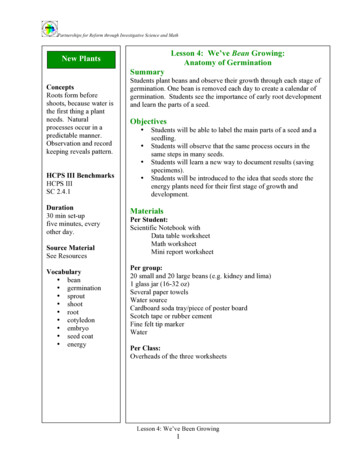

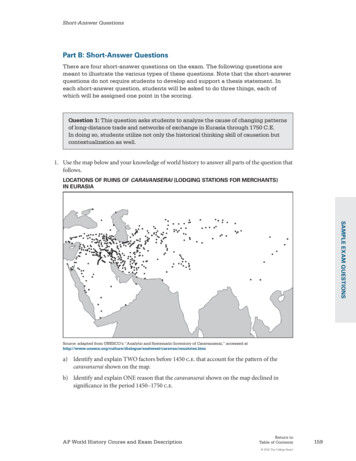
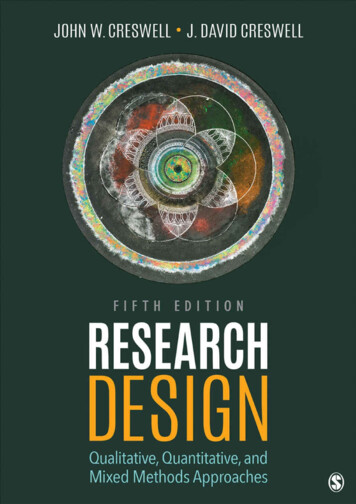
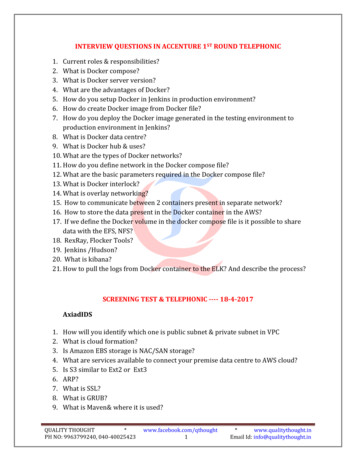
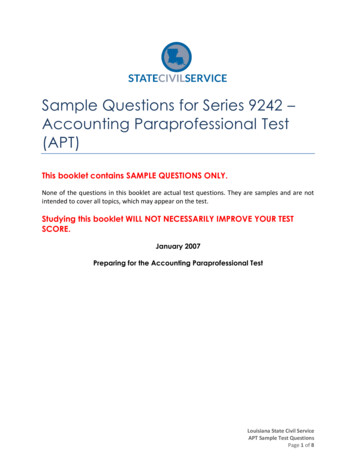
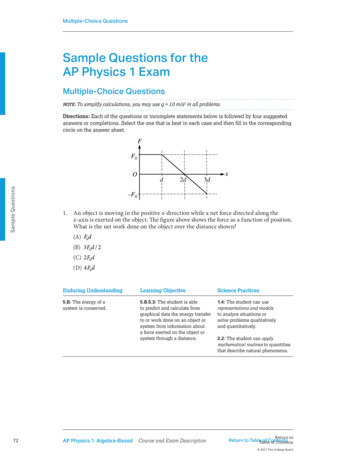
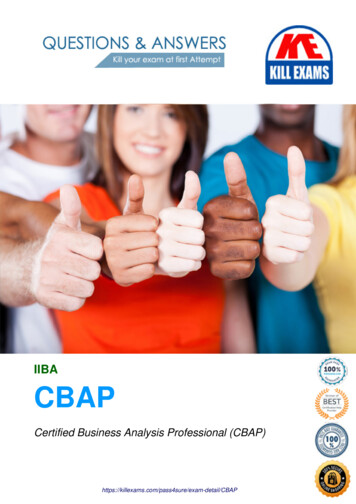
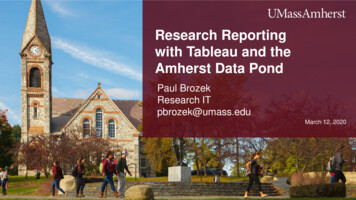
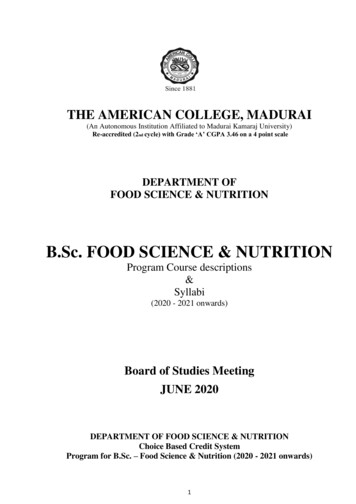
![Seed germination and sowing options [Chapter 9] - US Forest Service](/img/30/wo-ah732-163-183.jpg)